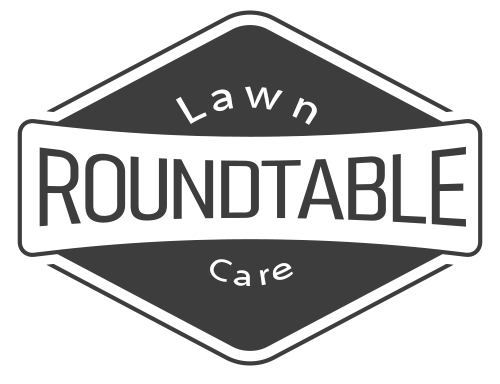Navigating North Kentucky’s Gardening Zones: A Path to Flourishing Flora

Gardening novices, get ready to embark on a horticultural adventure! The path to creating a flourishing garden in North Kentucky begins with understanding your planting zone. Enter our comprehensive guide, your key to unlocking the secrets of gardening success. We’ll guide you through North Kentucky’s unique planting zones, empowering you with the knowledge to select the perfect plants and gardening practices for your specific location. Whether you’re a seasoned gardener or just starting your journey, this article is your trusty companion, leading you towards a thriving garden.
Key Insights: Gardening Success in North Kentucky
-
Understand Your Planting Zone: Determine if your location falls within Zone 5 or Zone 6, as this influences plant selection and gardening practices.
-
Select Zone-Appropriate Plants: Choose plants that are well-suited to the climate conditions of your specific planting zone to increase their chances of survival and success.
-
Utilize Local Resources: Connect with experienced gardeners and horticultural experts at local nurseries to gain valuable advice and support tailored to North Kentucky’s unique gardening conditions.
-
Embrace Online Gardening Communities: Join online forums and social media groups dedicated to gardening in North Kentucky to expand your knowledge, connect with fellow enthusiasts, and stay abreast of the latest gardening trends.
-
Stay Informed and Adaptable: Continuously seek updated information and best practices from reputable sources to enhance your gardening skills and adapt to changing conditions.
1. Planting Zones Unveiled: Understanding North Kentucky’s Climate
Welcome to the world of gardening in North Kentucky! Before you start planning your dream garden, it’s essential to understand the unique climate patterns that shape our region’s plant life. North Kentucky falls within two USDA hardiness zones: zone 5 and zone 6. These zones are determined by the average annual minimum temperature, which influences the types of plants that can thrive in our area. Zone 5 covers the northern part of North Kentucky, where temperatures can dip as low as -20 degrees Fahrenheit. This zone is suitable for cold-hardy plants such as hostas, daylilies, and peonies. Zone 6, on the other hand, encompasses the southern part of North Kentucky, where temperatures rarely fall below -10 degrees Fahrenheit. This zone offers a wider range of plant options, including roses, hydrangeas, and crape myrtles. Understanding your planting zone is crucial for selecting the right plants for your garden. Choosing plants that are adapted to your zone will increase their chances of survival and success. So, grab your gardening gloves, embrace the knowledge of planting zones, and get ready to create a flourishing garden that reflects the beauty of North Kentucky’s climate.
2. Zone 5: Nurturing Cold-Hardy Plants
Welcome to Zone 5, where gardening is an adventure in resilience and beauty! Zone 5 is characterized by cold winters with temperatures dropping as low as -20 degrees Fahrenheit. Despite the chilly winters, Zone 5 offers a surprising array of cold-hardy plants that thrive in these conditions. When selecting plants for your Zone 5 garden, focus on varieties that are known for their hardiness and ability to withstand the cold. Some excellent choices include hostas, daylilies, peonies, and ornamental grasses. These plants have adapted to survive the winter months and will reward you with stunning blooms and foliage come spring. To ensure success in Zone 5 gardening, provide your plants with adequate protection during the winter. Mulching around your plants with materials like straw or bark helps insulate the roots and protect them from freezing temperatures. Additionally, consider using row covers or cold frames to extend the growing season and safeguard your plants from unexpected cold snaps.
3. Zone 6: A Haven for Diverse Flora
Welcome to Zone 6, where gardening transforms into a vibrant canvas of colors and textures! Zone 6 experiences milder winters compared to Zone 5, with temperatures rarely falling below -10 degrees Fahrenheit. This expanded temperature range opens up a world of possibilities for gardeners, allowing you to cultivate a diverse array of plants that thrive in these conditions. With a Zone 6 garden, you can indulge in growing an abundance of beautiful flowers, including roses, hydrangeas, and crape myrtles. These plants will grace your garden with their stunning blooms and create a captivating visual display. Zone 6 also welcomes a variety of vegetables and fruits, such as tomatoes, peppers, and strawberries. Imagine the joy of harvesting fresh produce from your own backyard! To ensure your Zone 6 garden flourishes, provide your plants with well-drained soil, as many plants in this zone prefer not to sit in soggy conditions. Additionally, consider incorporating raised beds into your garden design to improve drainage and extend the growing season. With proper care and attention, your Zone 6 garden will flourish, becoming a haven for diverse flora and a source of endless gardening rewards.
4. Microclimates: Unlocking Hidden Gardening Possibilities
Welcome to the intriguing world of microclimates, where gardening takes on a whole new dimension! Microclimates are localized areas within a larger climate zone that experience unique conditions due to factors like topography, vegetation, and bodies of water. North Kentucky is home to a fascinating array of microclimates, each offering its own set of gardening opportunities and challenges. For instance, areas near large bodies of water, such as the Ohio River, tend to have milder temperatures and longer growing seasons. This creates favorable conditions for growing plants that may not typically thrive in Zone 5 or Zone 6. On the other hand, valleys and low-lying areas can experience colder temperatures and frost pockets, which require gardeners to select cold-hardy plants and take extra precautions during the winter months. Understanding the microclimates in your area empowers you to make informed decisions about plant selection and gardening practices. By observing the unique conditions in your garden, you can create targeted microenvironments that cater to the specific needs of your plants. Embrace the diversity of microclimates in North Kentucky and unlock a world of hidden gardening possibilities!
5. Garden Planning Success: Harnessing the Power of Zone Knowledge
Welcome to the exciting world of garden planning in North Kentucky! By understanding your specific planting zone, you hold the key to creating a thriving garden that flourishes season after season. When selecting plants, always consider their compatibility with your zone’s climate conditions. Choosing plants that are adapted to Zone 5 or Zone 6 will increase their chances of survival and success. In Zone 5, focus on cold-hardy plants like hostas, daylilies, and peonies. These resilient plants can withstand the colder temperatures and will reward you with beautiful blooms and foliage. In Zone 6, you have a wider range of options, including roses, hydrangeas, and crape myrtles. These plants thrive in the milder temperatures and will add a touch of elegance to your garden. Beyond plant selection, tailoring your gardening practices to your zone is essential. In Zone 5, provide winter protection for your plants by mulching around them or using row covers. In Zone 6, while winters are less severe, it’s still beneficial to mulch around your plants to retain moisture and suppress weeds. Embrace the power of zone knowledge and unleash the potential of your North Kentucky garden!
6. Local Nurseries: Pillars of Gardening Wisdom
Step into the welcoming world of local nurseries, where gardening wisdom flows freely! These havens for plant enthusiasts are staffed by experienced gardeners and horticultural experts who are eager to share their knowledge and help you succeed in your gardening endeavors. Whether you’re a seasoned pro or a budding beginner, local nurseries are treasure troves of invaluable advice and support. At local nurseries, you can seek personalized recommendations for plants that are best suited to your specific planting zone and microclimate. The knowledgeable staff can guide you towards varieties that will thrive in your garden’s unique conditions, ensuring a flourishing landscape. Additionally, nurseries often host workshops and classes, providing opportunities to learn from experts and connect with fellow gardening enthusiasts. By fostering relationships with local nurseries, you gain access to a wealth of gardening wisdom and support. These knowledgeable individuals can become your trusted advisors, helping you navigate the challenges of plant care, pest control, and seasonal transitions. Embrace the camaraderie and expertise found at local nurseries, and watch your garden flourish under the guidance of these passionate plant professionals!
7. Online Resources: Expanding Your Gardening Knowledge
Welcome to the vast world of gardening knowledge at your fingertips! The internet offers a wealth of reputable websites, forums, and social media communities dedicated to gardening in North Kentucky. These online resources are treasure troves of information, providing you with a platform to expand your knowledge, connect with fellow enthusiasts, and stay abreast of the latest gardening trends and techniques. Online gardening forums are vibrant communities where you can engage with fellow gardeners, share experiences, and seek advice. These forums often have dedicated sections for North Kentucky gardeners, allowing you to connect with individuals facing similar challenges and successes in your specific region. Additionally, many reputable gardening websites offer comprehensive articles, plant databases, and growing guides tailored to the unique conditions of North Kentucky. By tapping into these online resources, you gain access to a vast network of knowledge and support. Whether you’re seeking inspiration for your next gardening project, troubleshooting a plant problem, or simply connecting with like-minded individuals, the online gardening community is here to support your journey towards a thriving garden. Embrace the wealth of information and camaraderie available at your fingertips and elevate your gardening experience to new heights!
What are some additional tips for gardening in North Kentucky?
In addition to understanding your planting zone and utilizing local resources, consider these tips for gardening success in North Kentucky: – Choose disease-resistant plant varieties to minimize pest and disease issues. – Amend your soil with organic matter, such as compost or manure, to improve drainage and fertility. – Water your plants deeply and regularly, especially during hot and dry spells. – Mulch around your plants to retain moisture, suppress weeds, and regulate soil temperature.
How can I stay updated on the latest gardening news and best practices for North Kentucky?
To stay informed about the latest gardening news and best practices for North Kentucky, consider joining local gardening clubs or organizations. Additionally, follow reputable gardening websites and social media accounts tailored to the region.
Where can I find additional information and resources for gardening in North Kentucky?
The Kentucky Cooperative Extension Service, part of the University of Kentucky, offers a wealth of resources and information for gardeners in North Kentucky. Their website and local offices provide access to research-based gardening advice, workshops, and publications.
Table of Key Insights: Gardening Success in North Kentucky
| Key Insight | Description | |—|—| | Understand Your Planting Zone | Determine if your location falls within Zone 5 or Zone 6, as this influences plant selection and gardening practices. | | Select Zone-Appropriate Plants | Choose plants that are well-suited to the climate conditions of your specific planting zone to increase their chances of survival and success. | | Utilize Local Resources | Connect with experienced gardeners and horticultural experts at local nurseries to gain valuable advice and support tailored to North Kentucky’s unique gardening conditions. | | Embrace Online Gardening Communities | Join online forums and social media groups dedicated to gardening in North Kentucky to expand your knowledge, connect with fellow enthusiasts, and stay abreast of the latest gardening trends. | | Stay Informed and Adaptable | Continuously seek updated information and best practices from reputable sources to enhance your gardening skills and adapt to changing conditions. |
